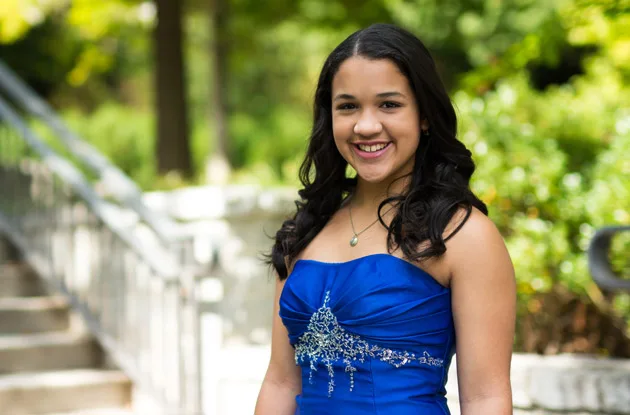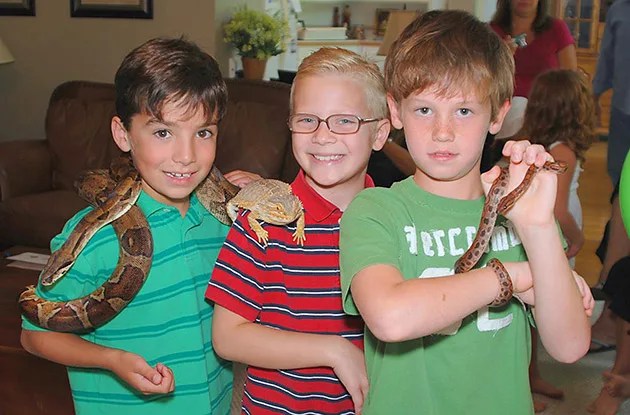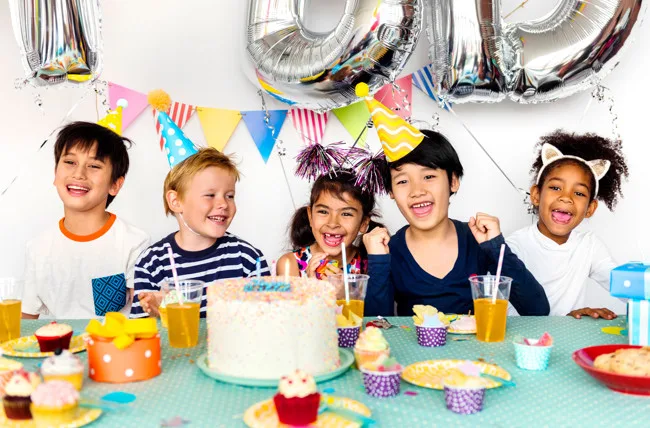It only happens once a year . . . and you want to make it memorable! Here are some tips for planning a great birthday party for your child:

Invitations
—How many to invite? Some party planners suggest one more than the birthday child’s age — a 7-year-old should invite eight friends.
—Ask your child’s teacher about the school’s policy on party invitations. Some request that every child be invited to avoid jealousy among classmates. If this seems unreasonable, or you foresee too many problems inviting just a few, consider a special outing, with one or two of your child’s closest friends, instead of throwing a party.
—One way to avoid the being-left-out scenario is to have an all-girls, or all-boys party. Kids will grasp this concept.
—You’d prefer they did, but not every guest will RSVP. Just do your stress level indicator a favor and make a note to call the non-responses a week in advance.
Food
—Kids love pizza and ice cream at parties. They expect them. They won’t appreciate anything fancier, and certainly not home-cooked food. Give in so your child isn’t labeled a party pariah!
—Make a salad as well — any parents who stay on to help will appreciate a break from party pizza.
—If your child has any kind of food allergy, call the host parent as soon as the invitation arrives. Don’t spring this on a fellow parent when you arrive on the actual day.
The gifts
—Most parents these days are concerned about overabundance of kid items. In advance of the party, consider having your child choose some toys that he no longer needs or plays with, and donate these to charity in order to make room for new gifts.
—Let’s face it: It’s part of learning how to be a civilized human being. When someone gives us a gift, we need to say a gracious “thank you” — even if we don’t like the item, or if we already have one just like it. Kids need to be taught this life lesson early on because it is contrary to their innate lack of inhibition. At present-opening time, sit with your child to deflect any left-field comments. If your child makes a faux-pas, discuss it later, and in private with your child.
—Parties make kids hyper to start with. The icing on the cake? It’s usually present-opening time. Explain to the birthday child in advance that some of his/her guests might get over-excited and want to touch and play with the gifts when they are opened. If your child seems too concerned about this prospect, be on hand at opening time to take each gift and place it in an area away from the children. Chances are, they will be so intent on wondering what is in the next box, they won’t even notice that earlier gifts have been spirited away.
—When your child is to be the guest, involve him in the choosing, buying and wrapping of the gift. Encourage him to make a card for the birthday friend. All this helps instill an enjoyment in giving and teaches the lesson that a gift with a personal touch is the best gift of all.
Party overload
—Some families alternate: one year, a party with friends; another year, family only. Or limit the guest list, so that your child won’t be buried under a mountain of expensive gifts.
—If your child is the guest and is shy, arrive early, so that he or she can ease into the festivities and feel more comfortable before the crowd arrives.
—Whether your child is the guest or the guest-of-honor, avoid meltdowns by having her eat a healthy meal before the party. Hungry kids, or kids who must rely on sugar-laden snacks, will be more prone to upset.
—If other parents offer to stay and help, and you know you could use the extra hand, accept the offer!
—If you’re throwing a party at home, and want to keep the crowd contained, rope off other areas with birthday banners. Kids will get the message and it will add an even more festive touch.
—If you’re organizing games, make sure every kid leaves with a prize. You might also put new spins on old games by changing a few rules so that nobody gets “out”. Birthday parties should be fun, and every child should feel the spirit of the celebration.
—Plan more rather than fewer activities/craft projects. These always take less time that you’ve planned for. The idea is to keep ’em busy the whole time. Extra tip: Craft projects can become instant party favors.
—How long should the party run? An hour-and-a-half for tiny ones; two hours for pre-schoolers; two-and-a-half hours for school-age.
—Avoid party stress by buying party favor items/decorations throughout the year when you see them on sale.
—A group of kids in your house/apartment will leave a mess! Be prepared in your mind that this will happen. Bottom line: They are kids having fun — a great thing! And it only happens once a year (per child!)
—Head off end-of-party tussles by labeling goody bags with each child’s name. Make sure each bag contains identical loot. And present the goody bag as they’re heading out the door — not a minute before!
—Expect that one or two parents will be late in picking up their children. Have a DVD handy and encourage a party cooldown time.
—Slumber parties can be difficult for parents. Flexibility is required. Expect that the kids will go to sleep very late. Make sure your child throws his on the eve of a lazy day. If it’s getting too late, inform them (while in your pajamas) that you’re going to join in — and watch how fast the lights are turned off, suggests Penny Warner, author of several party planning books.
Opportunities for learning
Kids want … a lot, and … when they see it. Suggesting they put the latest hot, “must-have” item on their birthday list is a great way for parents to respond fairly, and for kids to learn that certain purchases might be considered for special occasions like birthdays or holidays. But remember that kids have better memories than most parents! Make sure you make it clear from the outset that while it’s a great idea to compile their wish-lists throughout the year, they won’t be able to receive every item on it.
And parents should avoid telling kids, “No, we can’t afford that,” says Elizabeth Pantley, author of Perfect Parenting: The Dictionary of 1,000 Parenting Tips. She feels that this sends the message: You could have it if we could afford it. Better to explain that an item is overpriced, or that a similar item that costs much less is just as effective.
The party’s over
—Writing a ‘thank you’ note is a lesson kids won’t learn on their own. Elizabeth Pantley advises: “Create a new family rule: You may only play with the gift after the thank-you note has been written. This will get the job quicker than anything else.”
—Hand-written notes only? Yes, say the etiquette experts. But most parents would agree: An email thank-you is better than no thank-you at all! (And it becomes special when a personal party photo is attached).
—Last word: Keep the focus on fun! After all, this event should be a true celebration of your special child.
—No, very last word: Now book yourself a massage — you deserve it!





















